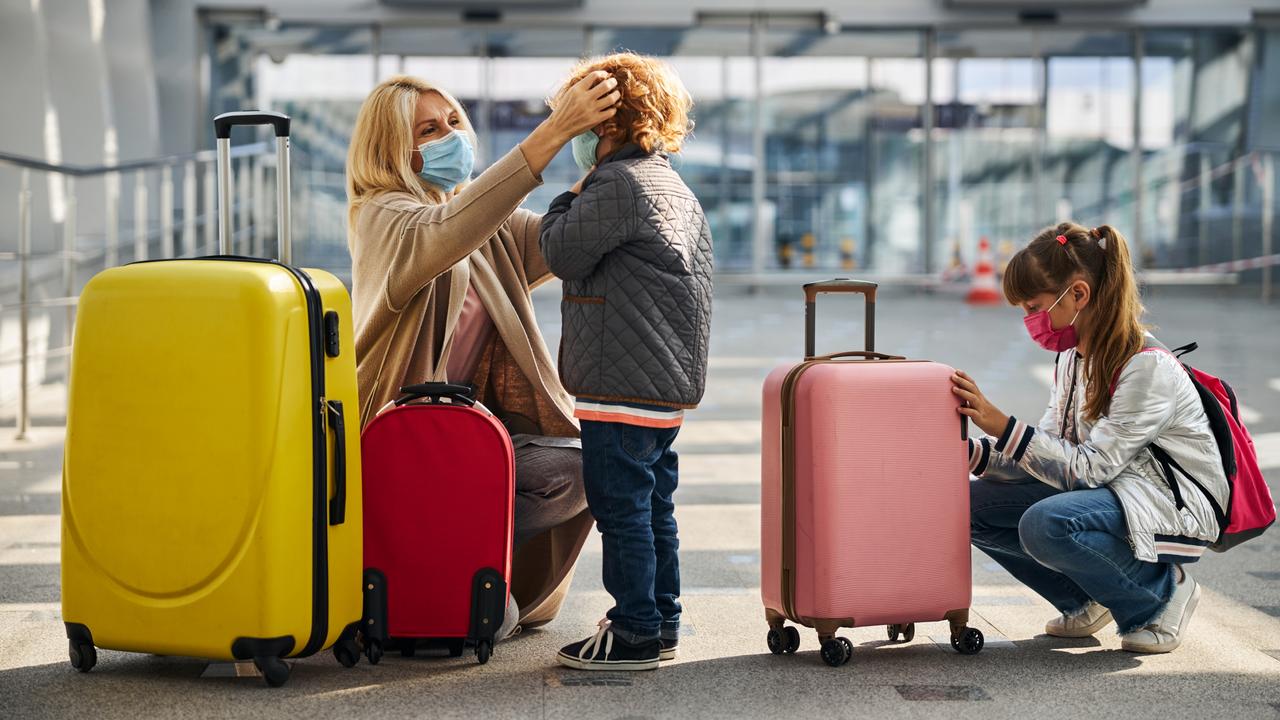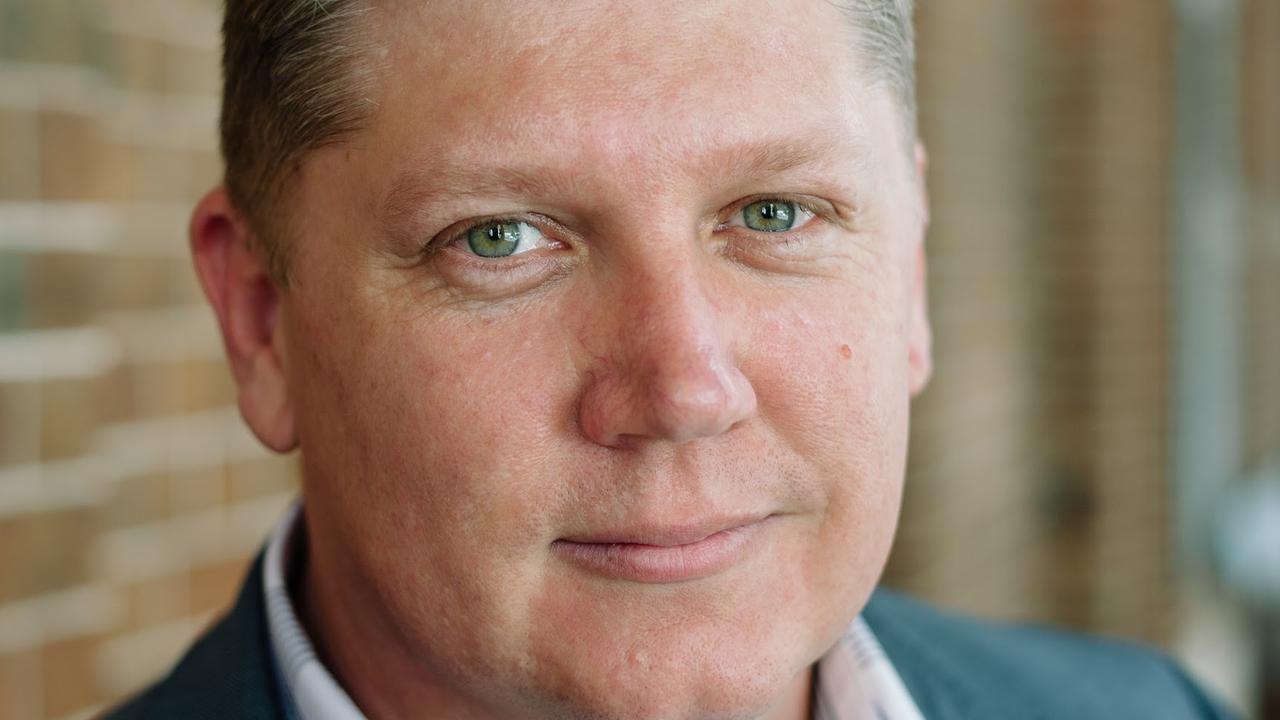The Great Sickie: record levels of accrued leave to bite businesses
An exhausted workforce, skills shortage and record levels of annual leave are going to leave employees stretched and it’s going to create a “horror show”.
Queensland man Armand has a whopping 430 hours of leave banked up – the equivalent to 56 days or 11 weeks.
The 47-year-old, who did not want his surname used, is one of the millions of Australians who have a record level of annual leave accrued.
Experts predict a rush on leave when the country fully opens up, putting the staff left behind under even more pressure.
But it’s also going to prompt a trend called The Great Sickie, with an exhausted and “pissed off” workforce taking unplanned time off, which could wipe billions overall off company’s bottom lines.
Armand, who works in the security industry, said he has only taken off about 10 days in the past four years.
He’s been told he’s one of the top 10 people who have banked up a huge amount of hours from a company that employs 20,000 people worldwide.
“I have taken an odd day here or there but that’s only if there was something special that I had to do at school with my son or a presentation or award, otherwise I haven’t taken any holidays off at all,” he said.

Another colleague has 500 hours of annual leave but Armand said the company is now forcing staff to take annual leave. He’s been told he needs to use up 14 days in the next six months.
The dad admits he is tired from constantly working but is also concerned about the impact on his colleagues with people taking holidays – particularly as his role requires working in a team of two.
“You do worry about the other person and feel like they have to pick up the slack if someone has called in sick and taken time off,” he said.
Over eight million Australians in paid employment now have 174.9 million days of annual leave, data from Roy Morgan found in May, up from 151.2 million days a year ago prior to the Covid-19 pandemic.
There are 1.37 million Aussies who have at least seven weeks of annual leave due, it found.
But behavioural scientist Aaron McEwan from global research and advisory firm Gartner believes that accrued leave would have grown even bigger since May after Sydney and Melbourne experienced months of lockdown.
He knows of people with a massive 16 to 18 weeks annual leave that is yet to be taken.

Combined with The Great Resignation, where millions of Aussies are predicted to quit their jobs next year, the record level of annual leave is bad news for business and employees, he said.
“My sense is we are going to get this weird combination where you have got all these people quitting their jobs, which pushes the burden of work on to the people who are left behind, which will probably trigger more resignations,” he warned.
“But it’s also going to trigger a lot of people at the end of the year when you can finally travel — there is a lot of people that are going to cash in their leave and take it.
“I suspect that you have also got a lot of people that haven’t spent a lot of money and are sitting on record levels of equity in their homes who might be in a position to take a prolonged break. So they will cash in leave and take additional unpaid leave on top of it and what do you do about it as an employer in the current climate? Imagine saying no, people will say they are quitting, so I can see this snowball effect happening.”
With skills shortages, thousands of job advertisements and an exhausted workforce, Mr McEwan said it’s going to place organisations in a “really tough position”.
“If a really valued employee comes to you and says the last two years have been a horror show for me and I need to take a break and I’m going to spend six months sitting on an island and if they turn around and say no we really need you, the person could quit,” he added.
“It’s going to be incredibly hard for organisations to say no to these requests.”

Normally organisations “can cash in some goodwill” with employees and ask them to postpone leave if its an important time for the company, but he warns this sentiment has all but dried up.
”I think the response will be no screw you I have worked my guts out for two years and what have I got to show for it? Nothing. I think organisations have exhausted the goodwill and that’s going to be the other challenge,” he noted.
But with millions of hours of leave banked up across Australia and anecdotes of employers forcing people to take leave, this could also lead to a phenomenon that Mr McEwan has dubbed The Great Sickie
This would not only impact on already overstretched staff, but the bottom line and employers’ growth plans, predicted Mr McEwan.
“When engagement goes down and when people are pissed off with their employer, they take more sickies and so more absenteeism means a big impact on discretionary effort, so the willingness to go above and beyond,” he explained.

Gartner data shows that almost 60 per cent of CEOs are pushing towards increased growth next year – but that growth typically comes from the discretionary effort of the workforce, he added.
Yet discretionary effort is at record lows too, according to Gartner’s findings.
“If people are fully engaged with their jobs they work harder and put more effort in. But if people are exhausted and ... then if you start seeing people taking leave left, right and centre and employees are left to carry the burden that exacerbates that further,” he said.
“People are less likely to go above and beyond and will just do the basics of their job – right at a time when CEOs are asking their people to do more and they are going to be way less willing.”

Mr McEwan said this is the time for companies to get on the frontfoot and plan for the avalanche of annual leave.
He said they should get a sense of when people want to take the time and offer breaks to better plan for the “pretty severe shortage of capacity” rather than responding to requests when they come in.
While for some it will be a holiday, for others the break could mean rescuing their marriage, reconnecting with their kids or even saving their lives, he added.
That’s the harrowing consequences of not taking time out, Mr McEwan said, warning of the possibility for health issues and lawsuits if leave requests are denied.
“We have already got record levels of burnout, which is just going to be exacerbated it if its not managed and if somebody, and I use the term liberally is psychologically injured, the onus falls back on the organisation,” he warned.
“There are lawsuits in the works at the moment that have been put forward in terms of an excessive workload has led me no other choice to resign so therefore I’ve been pushed out the door.
“If organisations don’t manage this well and they are faced with a shortage of people in critical periods and then are asking them to work harder, this could lead to a mental health episode or something like a stroke or heart attack.”

The fourth wave of the pandemic is coming, predicted Mr McEwan, and it’s nothing to do with skyrocketing case numbers either.
It’s the biggest one and the longest and it’s going to be the impact on mental health, he added.
“The impact of the pandemic itself with lockdowns, loss of loved ones, health, home schooling and then on top of that we have got this completely exhausted workforce that been working in this unsustainable way, so we haven’t seen that hit yet and what that its going to look like,” he said.
“Zurich (Financial Services) put out stats that there has been a 5 per cent increase in workers compensation claims related to mental health issues and another report that came out showed employees reporting that their mental health has deteriorated directly as a result of their work. “They are claiming ‘I’m anxious because of work’, but that’s been a 10 per cent increase on that.
“So we haven’t even got to the point where this fourth wave crashes and that will cause people to take time out of work to deal with the physical and mental illnesses that have been created by the pandemic.”






